Last Updated on June 3, 2023
Ponzu Sauce (Japanese Citrus Soy Sauce) is a soy-sauce based Japanese condiment that tastes savory, tangy, and aromatic with a subtle umami taste in the background. It’s one of the staples in Japanese cooking that you can use as a dipping sauce, pour over sauce and/or make a healthy non-oil salad dressing with. Once you taste ponzu sauce, you want to keep it in your vegan Japanese pantry!
What’s Ponzu Sauce?
Overview
Ponzu sauce is a Japanese condiment that’s made with soy sauce and a blend of aromatic citrus juice. In Japanese, it’s called as “ponzu shoyu” [ポン酢醤油] or simply “ponzu” [ポン酢.]
Unlike soy sauce, you want to use ponzu sauce as is a condiment or a dipping sauce. In other words, you don’t cook with it so you can maximize the flavor of it. Also, ponzu sauce is made without oil so it’s a guilt-free condiment/dipping sauce to use on your favorite dishes!
The most common ways to use ponzu sauce in Japan are:
- Tofu Hot Pot
- Shabu-Shabu
- Gyoza
- Fish
- Steamed Veggies
- Sautéed or Steamed Mushrooms etc.
Although, the it shouldn’t be cooked, you can use it on both cooked and raw dishes.
Typical Ingredients
The commonly used ingredients (but not limited to) in ponzu sauce are:
- Soy Sauce
- Mirin
- Sugar
- Rice Vinegar
- A blend of Japanese-Variety Citrus juice such as:
- Yuzu
- Kabosu
- Sudachi
- Yuko
- Daidai
- Lemon
- Bonito Flakes (non-vegan)
- Shiitake
- Kombu
What to Look For in Vegan Ponzu Sauce?
As mentioned, many ponzu sauce are not vegan friendly due to the use of bonito flakes. So, be sure to check if there’s bonito flakes in it. Good news is that we can find some great vegan one if you look for them.
Most vegan-friendly ponzu sauce have only shiitake and/or kombu as a “dashi” agent to give that umami flavor. The natural umami from the shiitake and kombu hits the back of the taste of ponzu sauce which is not overpowering but delicious!
Taste
Since ponzu sauce is soy sauce based, the main flavor would be the familiar taste of soy sauce. However, one of the main feature of ponzu sauce would be the pleasant tangy taste from the citrus juice which is very refreshing and aromatic. Typically, the saltiness of ponzu sauce is not as intense as the soy sauce.
Also, you would taste a hint of sweetness in the background from the mirin and/or sugar. Not too mention, a subtle umami taste from shiitake and/or kombu blends very well with all the other ingredients and very much enjoyable.
Aroma
Because of the citrus juice, ponzu sauce is aromatic however, typical store-bought ponzu sauce may not have a “fresh” citrus aroma that you would expect. If you want the true “freshness”, you would want to make homemade ponzu sauce.
Ways to Use Ponzu Sauce
There are a variety of ways to enjoy ponzu sauce in vegan Japanese cooking. Here are some examples of what I use it for:
- Chilled Tofu
- Cooked Tofu
- Gyoza (Japanese dumplings)
- Natto (Japanese fermented soybeans)
- Salad Dressing
- Pasta Salad (with vegan mayo)
- Cold Udon Noodles
- Cabbage Salad
- Okonomiyaki (Japanese savory pancakes)
- Shirataki Salad (see the photo below) etc.
As mentioned, you can use ponzu sauce for both raw and cooked dishes of all kinds. Just don’t cook with it!
How to Store
Unopen ponzu sauce can be stored at room temperature. Once it’s open, keep it in the fridge.
Where to Buy
There are some vegan friendly ponzu sauce available in where you live. But, you may have better chances finding ones online (that’s what I do.)
My absolute favorite is:
Organic Ponzu from Gold Mine Natural Foods
This is my go-to vegan ponzu sauce. It’s organic and has a blend of yuzu, yuko and sudachi citrus juice, as well as the umami from shiitake and kombu with a hint of sweetness.
The best of all, it’s a product of Japan. I highly recommend it!
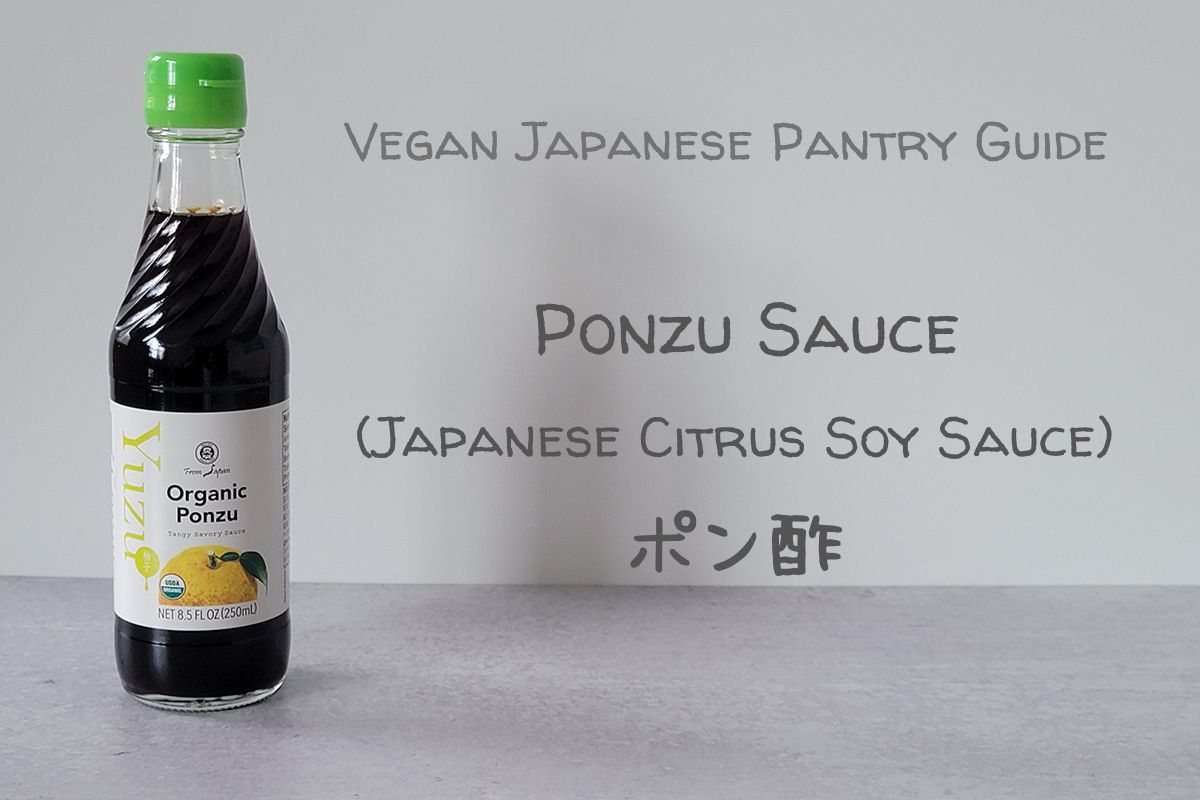
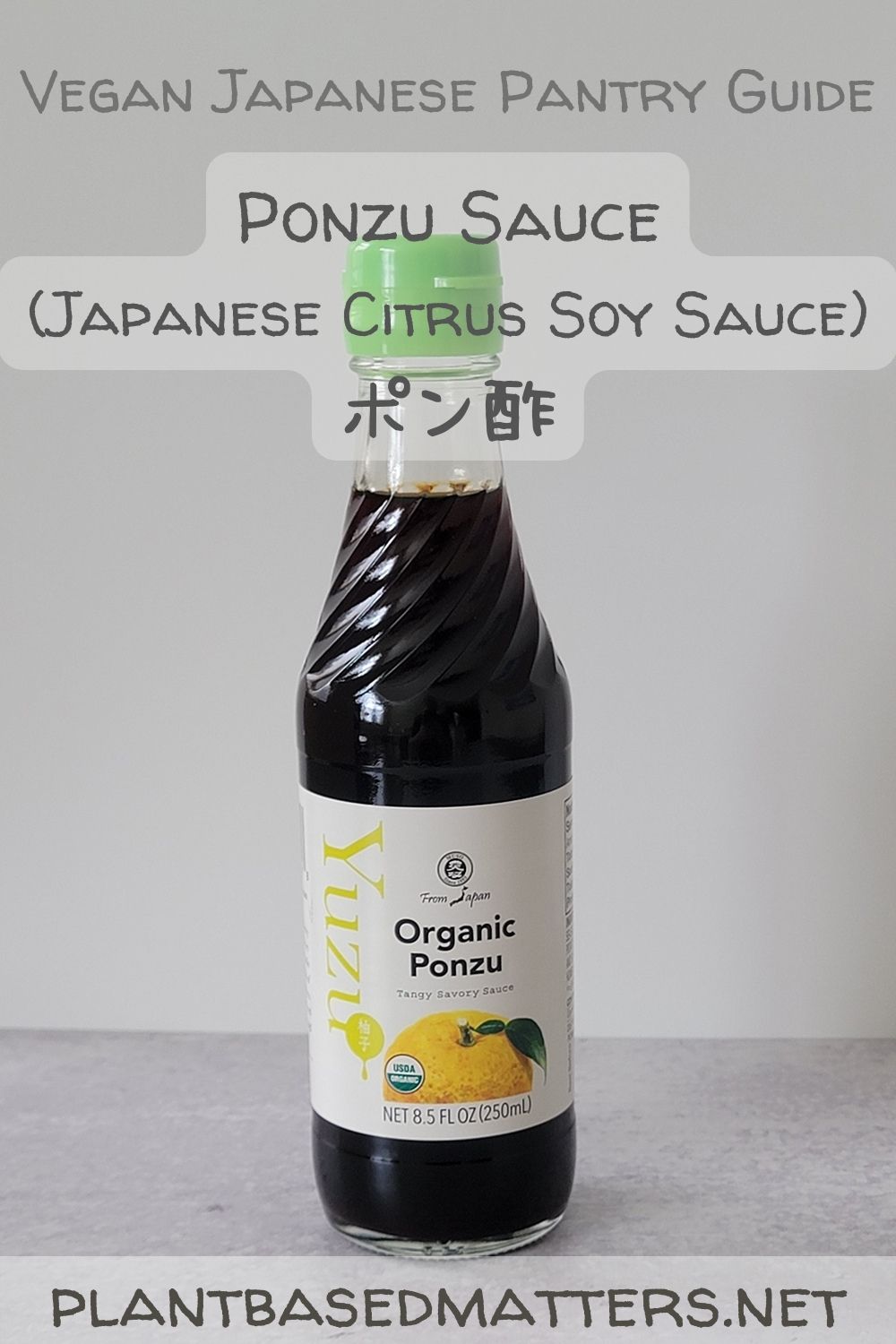
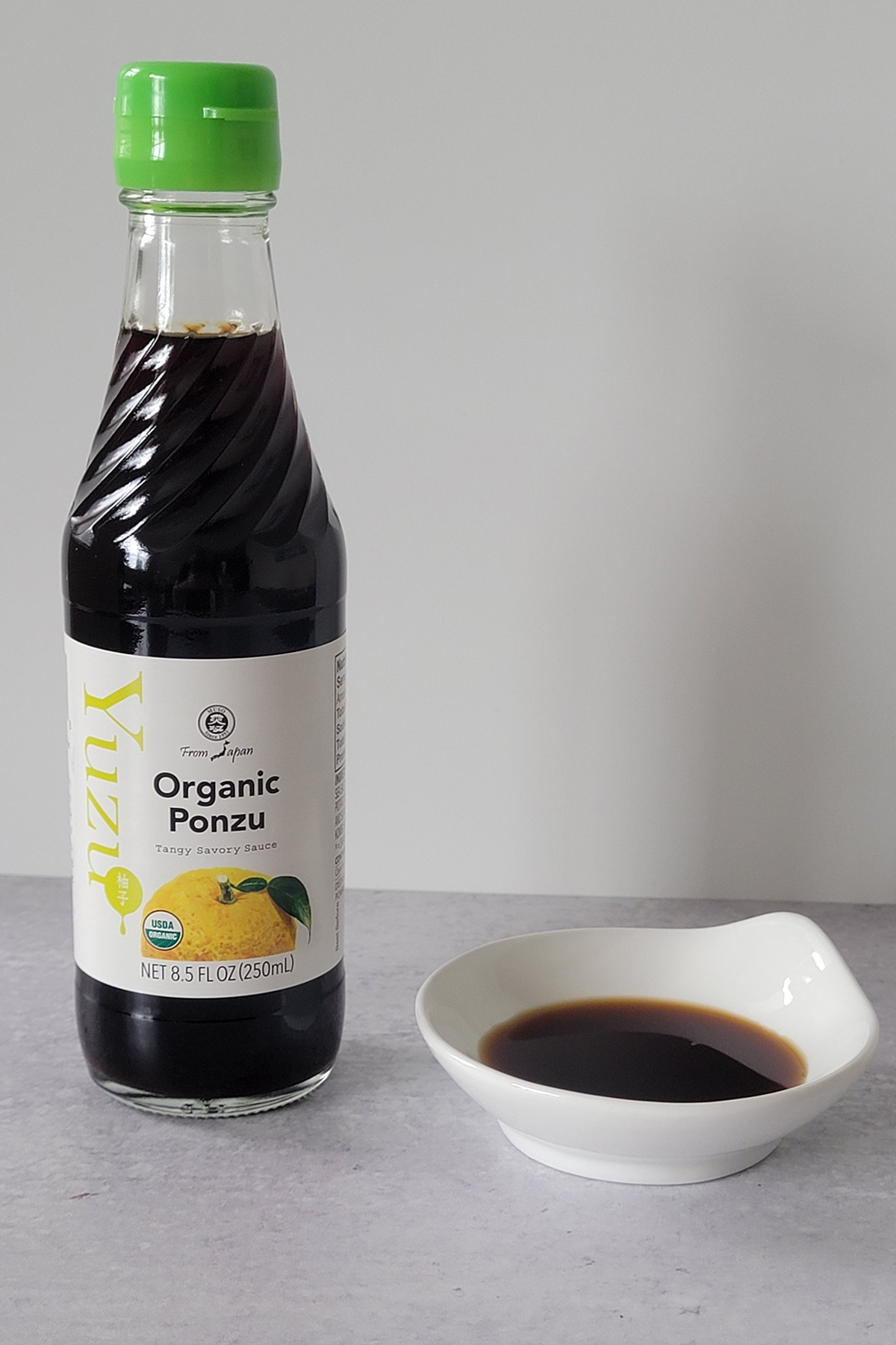

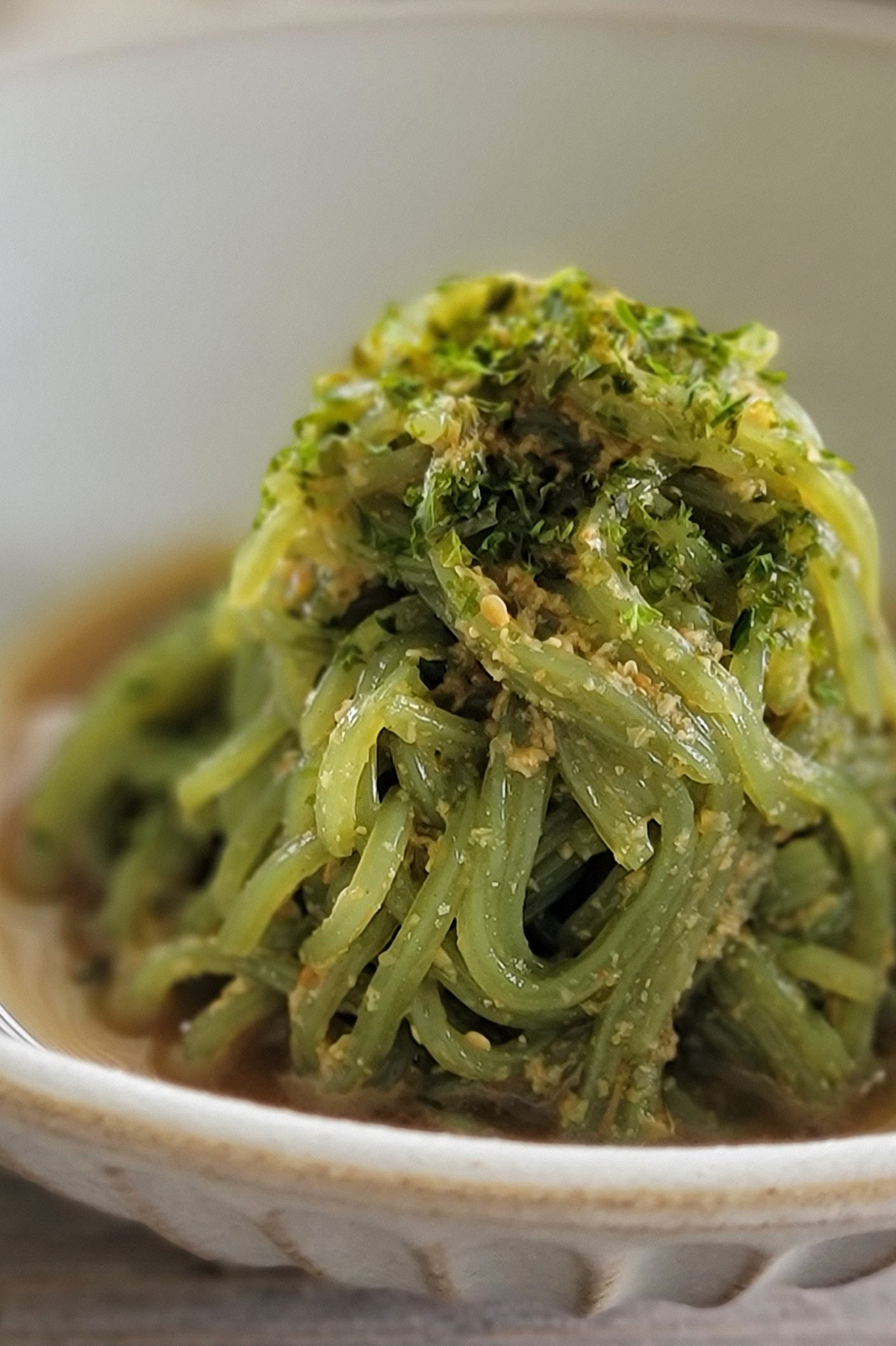
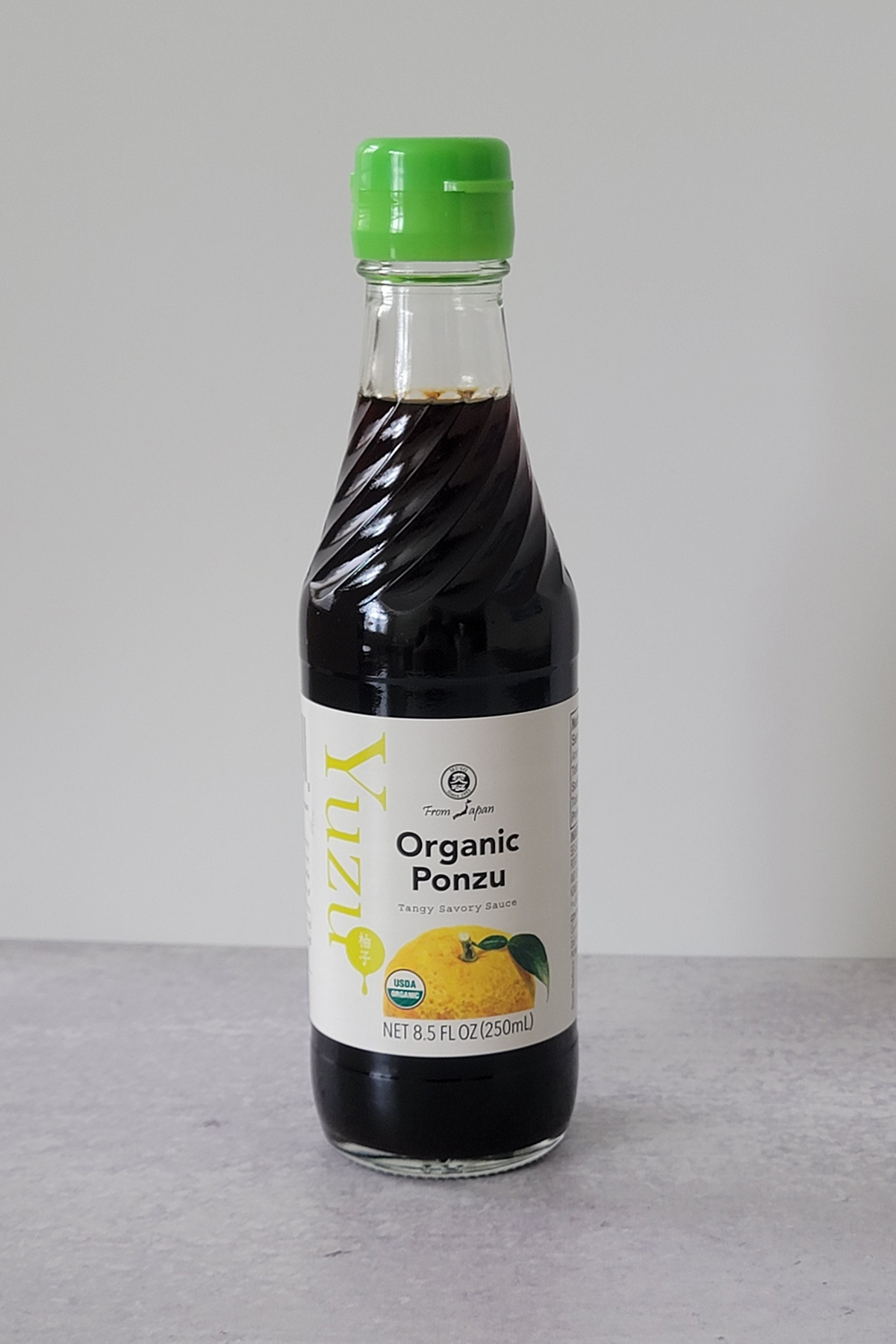


![LINGUINE WITH KALE & LEMON CAPER SAUCE
[ケール、レモン、ケイパーのリングイネ(ヴィーガン)]
By @plantbased_matters
Recipe at plantbasedmatters.net
Here is one of my best vegan pasta creations!
Linguine with Kale & Lemon Caper Sauce is a lemon-aroma-filled light pasta with kale and capers. Don't you love the combination of lemon and capers?
If you're new here, you may think I'm all Japanese/Asian food, but my non-Asian pasta recipes are hidden gems of my recipe collections 🤣 I can't believe how good the Linguine with Kale & Lemon Caper Sauce tastes especially with a drizzle of Meyer Lemon Olive Oil.
Enjoy!](https://plantbasedmatters.net/wp-content/plugins/instagram-feed/img/placeholder.png)